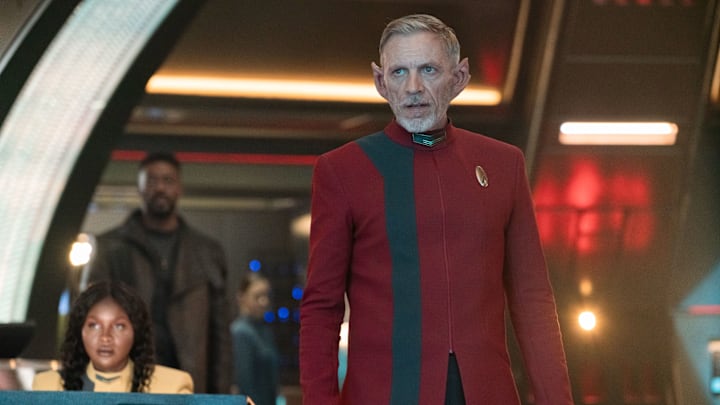One of the wildest and least talked about aspects of Star Trek: Discovery has been the active decision to implement AI into the ship starting with the show's time-jump to the 32nd century. By season four it had a gender, a name, and a personality. All while the actual writers and actors on the show tried to keep AI from coming into the acting and writing sphere.
It ended up culminating in a final scene during the season five season and series finale, where newly promoted Admiral Michael Burnham gave a tearful and heartfelt goodbye to the computer. The computer stands as a monolith of sorts for the franchise's active rejection of artificial intelligence being used in their work.
So it was beyond odd to see Burnham, played by Sonequa Martin-Green, giving this emotional goodbye to an entity that in reality is serving as the downfall of many industries and skill-based jobs. AI is an active thief for many content creators and it's doing far more harm than good. Yet, Discovery thought it would be wise to give the entity some sort of soul so that we can all relate to it.
Yet, the entire existence of AI is a step too far in the eyes of many. Including the actors and writers on the very show that is supposedly embracing it. With so many industries like Google, whose AI has posted wrong answers constantly, to video games that may see AI eliminate thousands of jobs, to even entertainment, where AI will allegedly make movies cheaper (and cheaper feeling), we have to wonder why Star Trek thought it was a good idea to fantasize something so inherently problematic.
It's like the series as a whole went out of its way to be such a polarizing show. Shockingly, Star Trek would glorify something so all-concusing, that by the actual 32nd century, ships would be largely controlled by AI and crewed vessels will long be a thing of the past.
